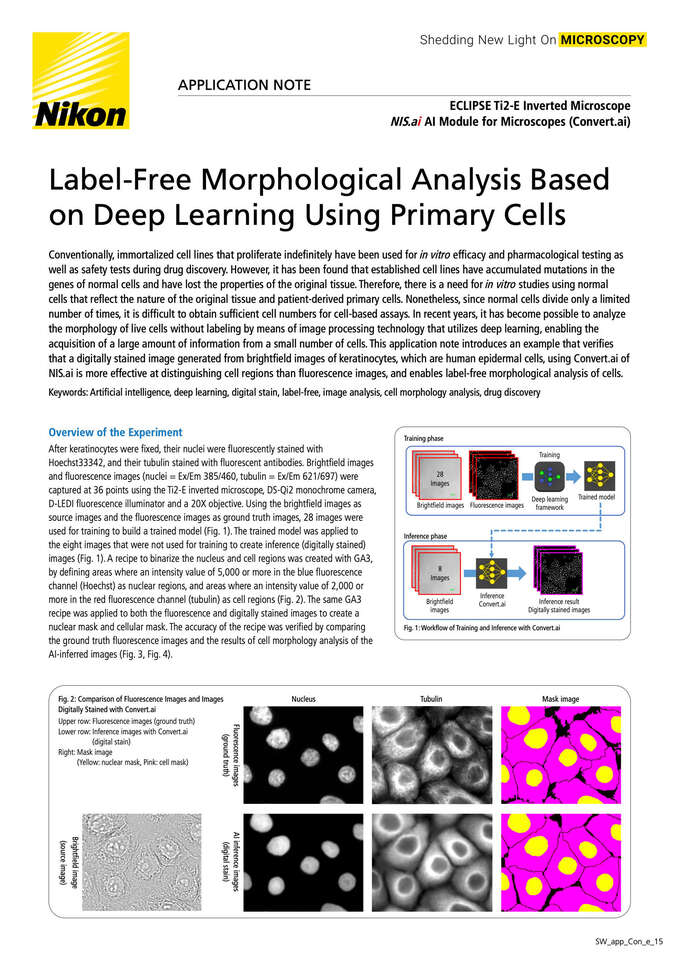- en Change Region
- Global Site
Application Notes

Label-Free Morphological Analysis Based on Deep Learning Using Primary Cells
October 2022
Conventionally, immortalized cell lines that proliferate indefinitely have been used for in vitro efficacy and pharmacological testing as well as safety tests during drug discovery. However, it has been found that established cell lines have accumulated mutations in the genes of normal cells and have lost the properties of the original tissue. Therefore, there is a need for in vitro studies using normal cells that reflect the nature of the original tissue and patient-derived primary cells. Nonetheless, since normal cells divide only a limited number of times, it is difficult to obtain sufficient cell numbers for cell-based assays. In recent years, it has become possible to analyze the morphology of live cells without labeling by means of image processing technology that utilizes deep learning, enabling the acquisition of a large amount of information from a small number of cells. This application note introduces an example that verifies that a digitally stained image generated from brightfield images of keratinocytes, which are human epidermal cells, using Convert.ai of NIS.ai is more effective at distinguishing cell regions than fluorescence images, and enables label-free morphological analysis of cells.
